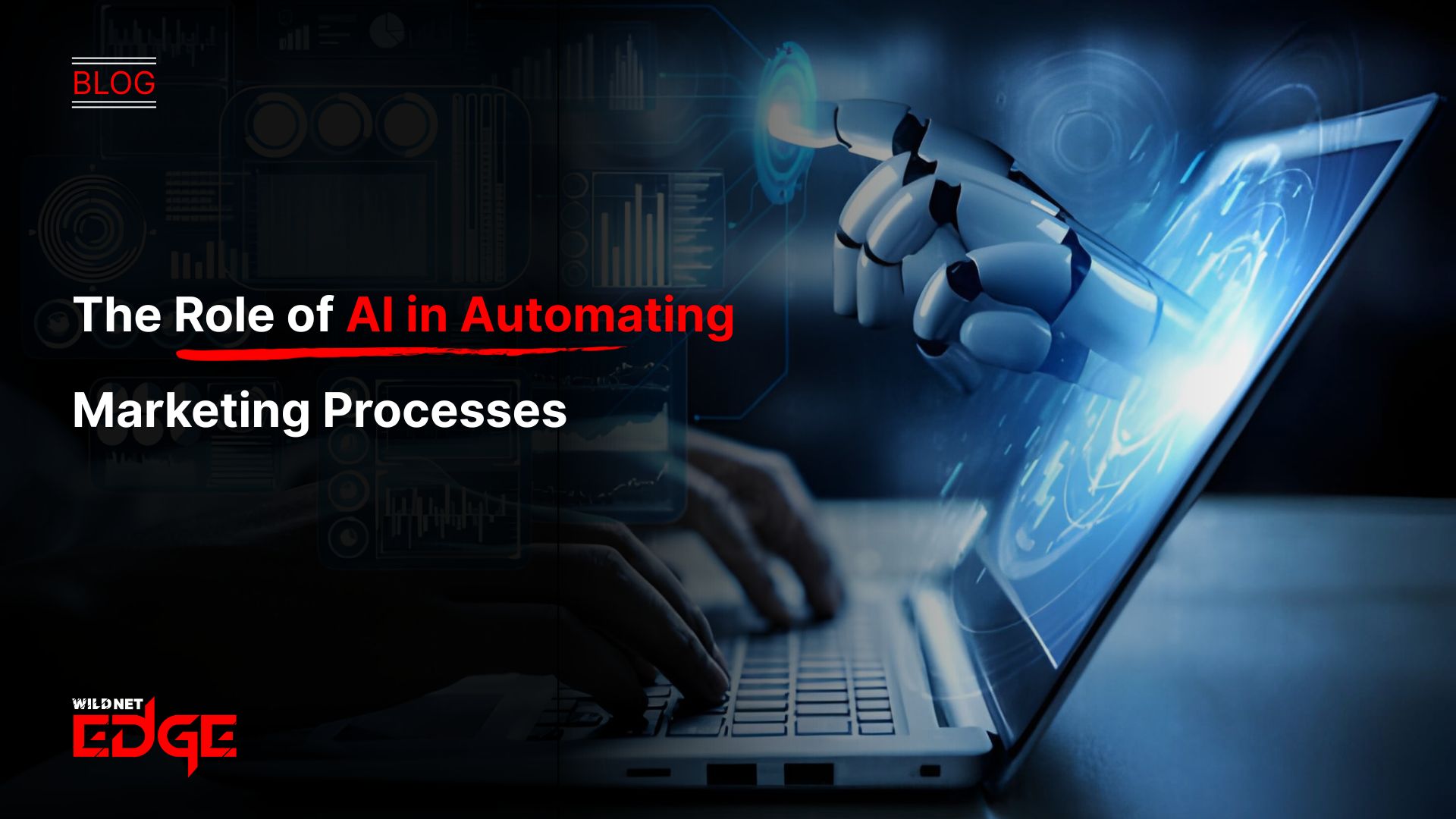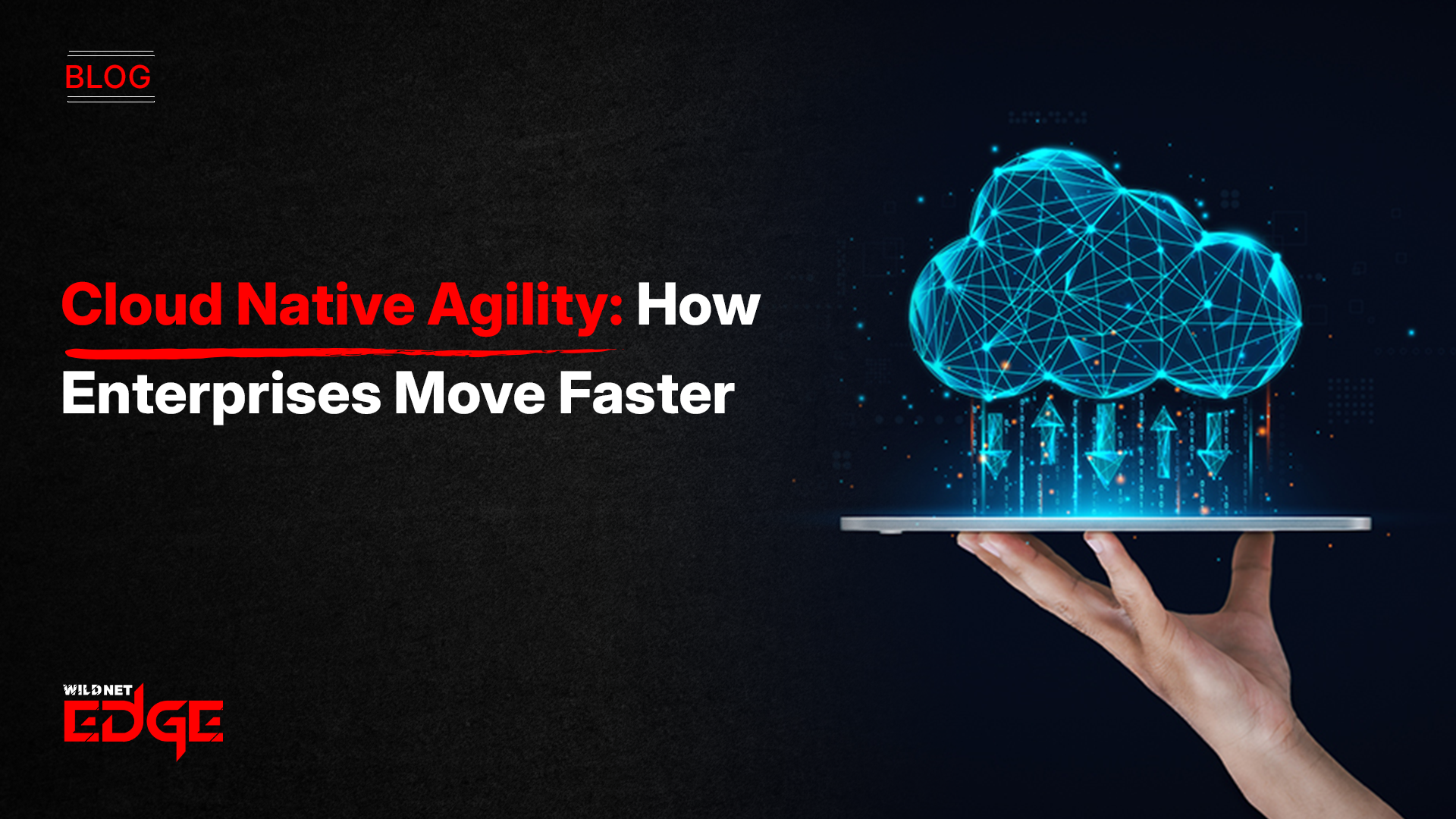TL;DR
This article explores the strategic role of AI in marketing automation. It details how AI technologies like machine learning and NLP power hyper-personalized AI-driven campaigns and dynamic customer segmentation. The blog also explains that marketing workflow automation with AI leads to significant efficiency gains, better lead scoring, and optimized ad spend. For businesses, adopting AI in marketing automation is presented as a critical strategy for delivering relevant customer experiences at scale, improving marketing ROI, and gaining a competitive edge by making data-driven decisions in real time.
Traditional marketing automation was built on static rules. But in 2026, your customers expect personalization that regulations can’t deliver. The next evolution is here: AI in marketing automation. This guide explores how artificial intelligence transforms marketing from a series of pre-programmed messages into a dynamic, intelligent system that anticipates customer needs and drives unprecedented growth.
What is AI in Marketing Automation?
Traditional marketing automation is excellent at “if-then” tasks: if a user downloads a guide, send them Email A. AI in marketing automation, however, is predictive and adaptive. It uses technologies like machine learning and natural language processing to analyze customer behavior and make decisions. Instead of just sending Email A, an AI-powered system might decide which email to send, when to send it, and on which channel (email, SMS, push notification) based on that user’s unique profile and predicted intent.
It’s a shift from executing static workflows to orchestrating dynamic, intelligent ones. Businesses partner with a specialized AI Automation Agency to build these sophisticated systems that drive real results. This is the future of marketing workflow automation.
Core Business Benefits of AI-Driven Campaigns
For a business leader, the benefits of integrating AI in marketing automation are not theoretical; they are tangible and directly impact the bottom line.
Hyper-Personalization at Scale
AI allows you to treat millions of customers as individuals. It can analyze browsing history, purchase data, and real-time behavior to deliver 1-to-1 personalized product recommendations, website content, and email messages. According to HubSpot customized calls-to-action convert over 200% better than generic ones. This level of personalization, which is central to AI-driven campaigns, dramatically increases conversion rates and customer lifetime value.
Enhanced Efficiency and Cost Reduction
AI automates the time-consuming, repetitive tasks that bog down marketing teams. This includes content creation (drafting ad copy, email subject lines), media buying (optimizing ad spend in real-time auctions), and complex data analysis. This marketing workflow automation frees up your skilled marketers to focus on strategy, creativity, and high-level planning, rather than manual execution.
Deeper Customer Insights
AI can analyze massive, unstructured datasets like customer reviews, support tickets, and social media comments to uncover deep insights into why customers buy or churn. These AI-driven customer insights are often hidden from traditional analytics. Understanding customer sentiment and intent at this level allows you to make smarter, data-driven decisions about product development and marketing strategy.
Use Cases for AI in Marketing Automation
The practical applications of AI in marketing automation are already transforming key business functions.
Intelligent Customer Segmentation
Forget static lists based on demographics. AI can create dynamic, predictive segments based on behavior. For example, it can automatically identify a “high-risk-of-churn” segment (based on decreasing login frequency) or a “high-propensity-to-buy-X” segment (based on browsing patterns). This allows you to target your AI-driven campaigns with surgical precision.
Predictive Lead Scoring
Not all leads are created equal. AI analyzes your historical sales data to identify the attributes and behaviors of leads that are most likely to convert. It then automatically scores new incoming leads, allowing your sales team to ignore the “tire-kickers” and focus their efforts on the hottest prospects, dramatically increasing sales efficiency.
Conversational Marketing and Support
AI in marketing automation is not just for outbound messages. Intelligent chatbots and virtual assistants provide 24/7, personalized support and can even guide users through a sales funnel. An AI Virtual Assistant can qualify leads on your website in real-time, ask relevant questions, answer objections, and schedule a demo with a human salesperson, all automatically.
Dynamic Content and Ad Creative
Generative AI can create dozens of variations of ad copy, images, and email subject lines. The AI can then A/B test these variations in real-time to find the combination that delivers the highest conversion rate, continuously optimizing your AI-driven campaigns.
Implementing Your Marketing Workflow Automation Strategy
Adopting AI in marketing automation requires a strategic plan.
- Define Clear Goals: Start with a specific business problem. Do you want to reduce churn by 15%? Do you want to improve your marketing qualified lead (MQL) to sales qualified lead (SQL) conversion rate? A clear goal focuses your strategy.
- Consolidate and Clean Your Data: AI is powered by data. Your customer data from your CRM, eCommerce platform, and analytics tools must be clean, unified, and accessible. A single, accurate view of the customer is essential.
- Integrate Your Systems: The true power of marketing workflow automation is unlocked when your systems are connected. Your marketing platform needs to talk to your CRM and your sales platform to create a seamless flow of data.
- Start Small and Iterate: Don’t try to automate everything at once. Pick one high-impact process, like lead scoring or cart abandonment, and build from there. This allows you to prove the ROI and learn as you go. Many businesses use expert partners to Automate Business Processes in a phased, strategic manner.
Our AI in Marketing Automation in Action: Case Studies
Case Study 1: AI-Powered Personalization Boosts eCommerce Conversions
- The Challenge: A large online retailer was struggling with low conversion rates from its generic email marketing. Their “one-size-fits-all” promotional blasts were being ignored, leading to low engagement.
- Our Solution: We developed an AI-powered personalization engine. The system analyzed real-time user behavior on their site (pages viewed, items carted) and combined it with past purchase history to power dynamic email content and personalized on-site product recommendations.
- The Result: The AI-driven campaigns saw a 35% increase in click-through rates and a 20% lift in average order value. The AI in marketing automation delivered a truly personalized shopping experience that drove tangible revenue.
Case Study 2: Predictive Lead Scoring Transforms B2B Sales Efficiency
- The Challenge: A B2B software company had a high volume of inbound leads, but their sales team was wasting valuable time on prospects who weren’t ready to buy, while qualified leads went cold.
- Our Solution: We built a predictive lead scoring model that integrated with their CRM. The model analyzed over 50 data points (including firmographics, website engagement, and email interactions) to assign a “readiness” score to each lead, automatically routing “hot” leads to sales. This required building one of our Custom Software Solutions.
- The Result: The sales team’s conversion rate on marketing-qualified leads increased by 40%. Automating the marketing workflow allowed them to focus their efforts, dramatically improving sales efficiency and team morale.
Our Technology Stack for Marketing Automation
We leverage a modern stack to build robust automation systems.
- AI & Machine Learning: Python (Scikit-learn, TensorFlow, PyTorch)
- Marketing Automation Platforms: HubSpot, Marketo, Salesforce Marketing Cloud
- Data Platforms: Databricks, Snowflake, Google BigQuery, AWS Redshift
- Chatbot Frameworks: Google Dialogflow, Rasa, Microsoft Bot Framework
- Integration: MuleSoft, Zapier, Custom APIs
Conclusion
Thus, AI in marketing automation is the key to moving beyond generic broadcasts and building genuine customer relationships at scale. By leveraging AI to understand behavior and automate intelligent responses, you can deliver the personalized experiences that modern customers demand. This is how you build a data-driven, efficient, and highly competitive marketing operation.
Ready to build more innovative marketing engine? At Wildnet Edge, our AI-first approach ensures we make more than just automation. We create intelligent AI-driven campaigns and marketing workflow automation systems designed to give you a decisive, data-driven competitive advantage. Connect with us to transform your marketing.
FAQs
You can start with the data you have. While more high-quality data is always better, even a few thousand customer records with basic engagement and transaction history can be enough to build an initial lead scoring or segmentation model. The key is to have clean, organized data.
The biggest mistake is implementing AI tools without a clear strategy. They focus on the technology (“We need a chatbot”) rather than the business problem (“We need to reduce support ticket volume for common questions”). A successful strategy for ai in marketing automation always starts with a clear “why.”
No, it will augment them. AI is a tool that automates repetitive and data-heavy tasks, freeing up your human marketers to focus on what they do best: strategy, creativity, brand building, and complex problem-solving. It makes your team more efficient and more strategic.
Start small. Many modern marketing platforms (like HubSpot) have built-in, entry-level AI features. You can start by using AI to optimize email send times, get A/B testing suggestions for subject lines, or set up a simple knowledge-base chatbot.
Traditional lead scoring is manual and rule-based e.g., “Job Title = Manager, +10 points”. Predictive scoring, powered by AI in marketing automation, is dynamic. It analyzes all your historical data to find hidden patterns and automatically determines which attributes predict a conversion, which is far more accurate.
The key is transparency and value. Personalization feels “creepy” when it’s inaccurate or uses data in a way the customer doesn’t expect. It feels “helpful” when it’s accurate and relevant. Focus on using data to solve customer problems (e.g., “Here’s that product you were looking for”) rather than just for invasive targeting.
The first step is to analyze your most repetitive, time-consuming marketing task. Is it manually segmenting email lists? Is it answering the same 20 questions on chat? Pick one of those processes and explore an AI solution to automate it. This provides a clear, measurable win.

Managing Director (MD) Nitin Agarwal is a veteran in custom software development. He is fascinated by how software can turn ideas into real-world solutions. With extensive experience designing scalable and efficient systems, he focuses on creating software that delivers tangible results. Nitin enjoys exploring emerging technologies, taking on challenging projects, and mentoring teams to bring ideas to life. He believes that good software is not just about code; it’s about understanding problems and creating value for users. For him, great software combines thoughtful design, clever engineering, and a clear understanding of the problems it’s meant to solve.
 sales@wildnetedge.com
sales@wildnetedge.com +1 (212) 901 8616
+1 (212) 901 8616 +1 (437) 225-7733
+1 (437) 225-7733















 ChatGPT Development & Enablement
ChatGPT Development & Enablement Hire AI & ChatGPT Experts
Hire AI & ChatGPT Experts ChatGPT Apps by Industry
ChatGPT Apps by Industry ChatGPT Blog
ChatGPT Blog ChatGPT Case study
ChatGPT Case study AI Development Services
AI Development Services Industry AI Solutions
Industry AI Solutions AI Consulting & Research
AI Consulting & Research Automation & Intelligence
Automation & Intelligence













